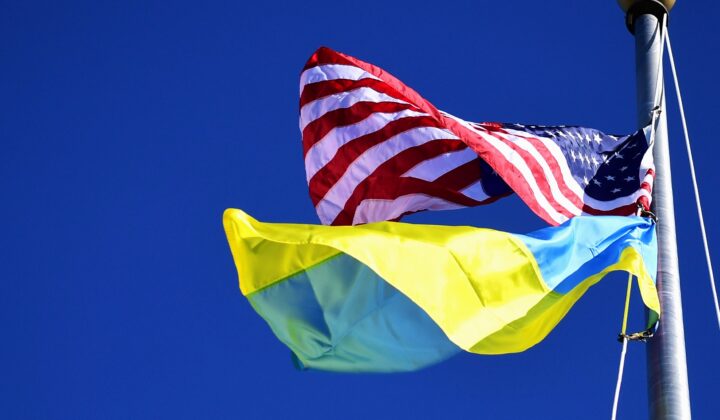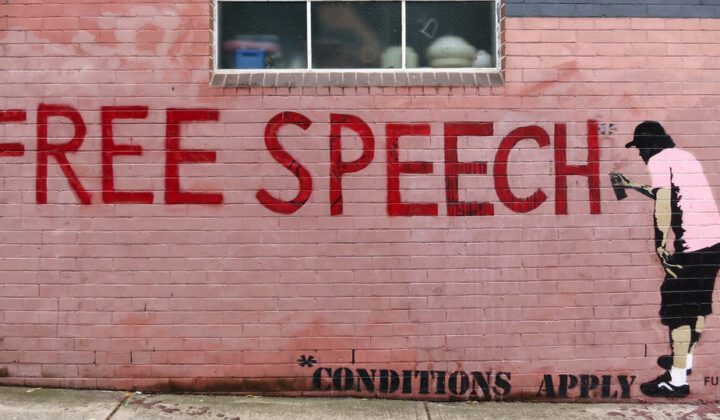The Agency is an investigative media outlet from Russian journalist Roman Badanin. They publish in Russian, covering “topics that are taboo for most editorial offices working in Russia.” This week they turned their attention to propaganda, specifically propaganda aimed at children. Looking at the five history textbooks the Russian Ministry of Education recommends for 10th graders, The Agency traced the creeping influence of Putinist ideology in the classroom.
Below are four quotes from the 10th grade Russian history textbooks vilifying the United States, threatening Ukraine, and justifying Putin’s wars and oppression.
1. Stalin Cleansed Russia of the “Fifth Column”
“The Spanish Civil War and Japan’s invasion of China testified to the growing danger of a new world war. Under these conditions, Stalin decided on a ‘general cleansing’ of Soviet society from a potential ‘fifth column.’” (Torkunov, part 1, p. 144)
The “fifth column” is the block of society in Russia supposedly aligned against national interests. Describing the history of Stalin’s purges wouldn’t be too notable, but Putin has recently adopted the same language, describing the fifth column as “national traitors… those who earn money here with us but live there… not even in the geographical sense of the word, but according to their thoughts, their slavish consciousness.” Putin then called for the “self-cleansing of society.” When anyone starts channeling Stalin about “cleansing,” it should be cause for concern.
2. The US Conspires to Destroy Russia
“The United States and the EU countries began to view Russia as an obedient junior partner (and in economic terms, as a place for capital investment, a sales market and a raw material appendage) and tried to take its place in the post-Soviet space. The temporary weakening of Russia caused a reorientation towards the West of a number of Eastern European states and the former republics of the Soviet Union, which was accompanied by the growth of nationalist and anti-Russian sentiments in them.” (Medinsky, p. 402)
According to the Putinists, the United States and EU countries exploited Russia, stole its sphere of influence, and promoted anti-Russian sentiments. The same authors wrote that the United States “under the slogan of imposing ‘democracy,’ solves international problems by force.” This post-Soviet grievance—that the West took advantage of a weakened great power to oppress it—lies at the foundation of Putin’s aggression.
3. Crimea is Russian
“In 1954 Crimea was transferred from the RSFSR to the Ukrainian SSR. The broadcast was timed to coincide with the anniversary of the reunification of Ukraine with Russia. At the same time, the opinion of local residents was not asked. In those years, it was believed that it was not so important which republic of the USSR included this or that territory. But the consequences of these decisions turned out to be long-term, since during the collapse of the USSR in the 90s administrative borders have become state.” (Medinsky, p. 278)
The transfer of Crimea from Russia to Ukraine in 1954 used to avoid mention, but now features prominently in every new textbook. Describing the transfer as a historical accident, children are led to believe that Crimea was unjustly ruled by Ukraine while “the opinion of local residents was not asked.” This particular narrative seems to have stuck—when Putin invaded Crimea in 2014, his approval rating soared to 82%.
4. Kyiv Targets Ethnic Russians
“In fact, a civil war began in this country, as the authorities decided to suppress the self-proclaimed Donetsk People’s Republic and the Lugansk People’s Republic by force of arms. Thousands of civilians were killed, including children.”
(Tishkov, part 2, p. 189)“The Kiev authorities sabotage their obligations, inflate anti-Russian hysteria, calling Russia an aggressor, and with the help of the blockade of the republics of the DPR and LPR, provocations prevent the peaceful resolution of the bloody conflict.” (Karpov, p. 196)
“The Ukrainian authorities, ignoring the interests of millions of their own citizens, intensively ousted the Russian language from the media, film distribution, and the education system.” (Torkunov, part 3, p. 94)
Russian textbooks describe Ukraine’s 2014 Revolution of Dignity as the “coup d’etat in February 2014” in which “militant nationalist forces oriented towards integration with the European Union and joining NATO.” As Russian 10th graders learn, the Ukrainian government is illegitimate, murderous, and deliberately discriminatory against Russians like them.
WHAT IT MEANS: Putin’s propaganda machine doesn’t just rely on cable news, it’s an entire system of indoctrination starting in childhood. Garry Kasparov wrote, “It was over 10 years ago when we estimated it would take around 6 weeks of unregulated media in Russia to get rid of Putin. It would take longer now, real deprogramming. Showing people the truth isn’t enough if they simply won’t believe their own eyes.”
But the enormity of the task only makes it more essential. Despite Putin’s efforts to control the media landscape, Russian-language dissident journalists continue to challenge Putin’s iron curtain. The free press is still the greatest tool for democratization, and RDI is currently working with a number of Russian-language media organizations to challenge propaganda’s grip on the Russian people. The war for Ukraine will be won on the battlefield, but the struggle for democracy in Russia will be won in the hearts and minds of the Russian people.





